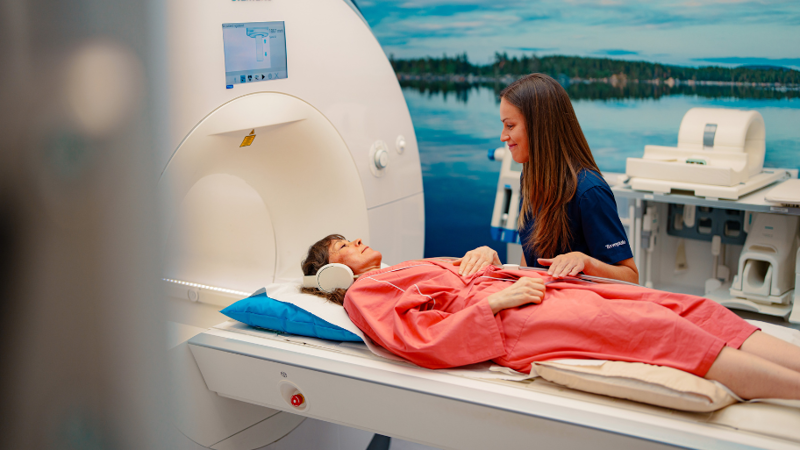AI learns to predict mental health diagnoses, results can be used for prevention
Artificial intelligence learned to identify traits that can predict a future mental health diagnosis from responses to an occupational health questionnaire assessing health and wellbeing, according to a study by Terveystalo and the Finnish Institute of Occupational Health. The finding sheds light on the potential of AI in identifying and preventing mental health problems.

The National Institute of Occupational Health, together with Terveystalo, carried out a study in which artificial intelligence searched for factors predictive of mental health diagnosis from health questionnaire responses.
– The use of AI and machine learning can make healthcare processes more efficient, faster and more accurate in the future. In the future, we will be able to do complex things without human hands, which will bring significant benefits in terms of time allocation for healthcare professionals. The development of algorithms needs to be done responsibly, and regulation in this area is not yet fully complete," said Simo Taimela, senior epidemiologist at Terveystalo, who was involved in the study.
Mental health disorders account for a significant proportion of sick leave: they are also the main cause of disability in Finland
Mental health problems are currently the biggest cause of longer sick leave and disability in Finland. Early identification and prevention of mental health problems is increasingly important for working life.
– New approaches offered by data-driven approaches can increase the quality and effectiveness of care. By predicting the risks of illness, we can intervene proactively to prevent risk factors, prevent the onset of illness and thus reduce mental health-related sickness absence and disability. Anticipating the need for treatment also helps to better allocate specialist resources, which can in turn ease the treatment gap," adds Taimela.
Predictors of mental health diagnosis included factors related to mood and sleep, and study revealed gender differences
In the study, questions about feeling stressed, daytime fatigue and sadness were the most predictive of a future mental health diagnosis. The AI also recognised that age and gender matter.
– For example, the experience of a hopeless future and income from work may predict a future mental health diagnosis more in men than in women. For women, work-life balance also emerged as one of the most important factors. Among physical symptoms, headaches and poor sleep played a role," says Taimela.
Early treatment of mental challenges is important
Daytime fatigue, which emerged as one of the predictive signals in the study, can be caused by sleep problems or a lack of adequate recovery.
– If you are experiencing daytime fatigue or sadness, getting preventive support quickly is important. Help can be sought through low-threshold discussion channels or from an occupational health psychologist, says Sari Nuikki, senior occupational health psychologist at Terveystalo.
It is important to treat all mental health challenges early, not after symptoms have become prolonged or chronic. For example, brief psychotherapy in occupational health has been shown to be effective in preventing mental health absenteeism and diagnoses.
– Fortunately, the stigma around mental health is receding and people are daring to talk about it more openly. For example, the number of visits to Terveystalo for anxiety and depression diagnoses has increased by about a third in the 2020s," says Nuikki.
Employers are now also more strongly expected to recognise and manage mental stress
In the June update of the Occupational Safety and Health Act, employers' obligations were clarified and they are now also more strongly required to identify and manage psychosocial stress. Here, too, AI data can help in the future.
Front-line workers, as the employer's representative, have a key role to play in identifying and preventing harmful stress.
– Harmful psychosocial stress can be caused, for example, by excessive data volumes, constant interruptions, difficult customer situations, excessive workloads and dysfunctions in the functioning of the work community. When we detect early warning signs of mental health problems, it is important to intervene as early as possible to avoid deepening problems," says Nuikki.
The study in brief
- The data for the study consisted of occupational health questionnaires and mental health diagnoses from 11,828 occupational health clients of Terveystalo.
- Those with a diagnosis before completing the questionnaire were removed and the follow-up period from completing the occupational health questionnaire to a possible mental health diagnosis was limited to two years.
- Guided machine learning was used to classify the data.
A classifier trained with questionnaire responses was clearly better than a random classifier, but questionnaire responses alone cannot yet predict mental health diagnoses in individual cases with complete confidence. - Managing and supporting well-being at work requires skilled and adequately resourced people to do the everyday things that support workers' well-being.
Read more occupational health articles

Terveystalo's digital services have been awarded the internationally recognized ISO27001 information security certification.
Terveystalo's information security practices, processes, and risk management are in line with international best practices.

Does massage help relieve stress? – Touch restores and calms the body and mind
Stress is not always visible on the outside, but the body does show signs when the strain increases. According to Lassi Ylönen, a trained massage therapist at Terveystalo Rela, the body often communicates stress through subtle signs.

Circular economy and artificial intelligence boost performance and improve care
At the heart of sustainable healthcare, technology serves as a tool for improving both the quality of care and accountability. Terveystalo favors solutions that combine sustainability, cost-effectiveness, and medical expertise.

Psychologist: How to make Christmas a relaxed and personal celebration
For many, the anticipation of Christmas begins when cities are decked out in seasonal lights and the first chocolates, calendars, and gingerbread cookies appear on store shelves. Christmas carols ring out and the Tonttuparaati choir sings “Kiire jo on! Kiire jo on!” (Hurry up! Hurry up!). This warm and atmospheric celebration also brings other feelings to mind: how on earth can we get through all this without losing our joy and peace in the rush?

Terveystalo and Gosta Labs deepen their cooperation: the goal is to streamline work with a superior patient information system
Terveystalo is deepening its cooperation with Finnish health technology company Gosta Labs and investing €1 million in the company as a minority investor. The aim is to jointly develop artificial intelligence solutions that improve the quality of care and the efficiency of reception work as part of Terveystalo's new patient information system, Terveystalo Ella.

First aid preparedness in companies requires action and courage
First aid skills increase resilience, but a barometer survey of Finnish organizations' first aid capabilities published in October reveals that the number of trained personnel is alarmingly low.